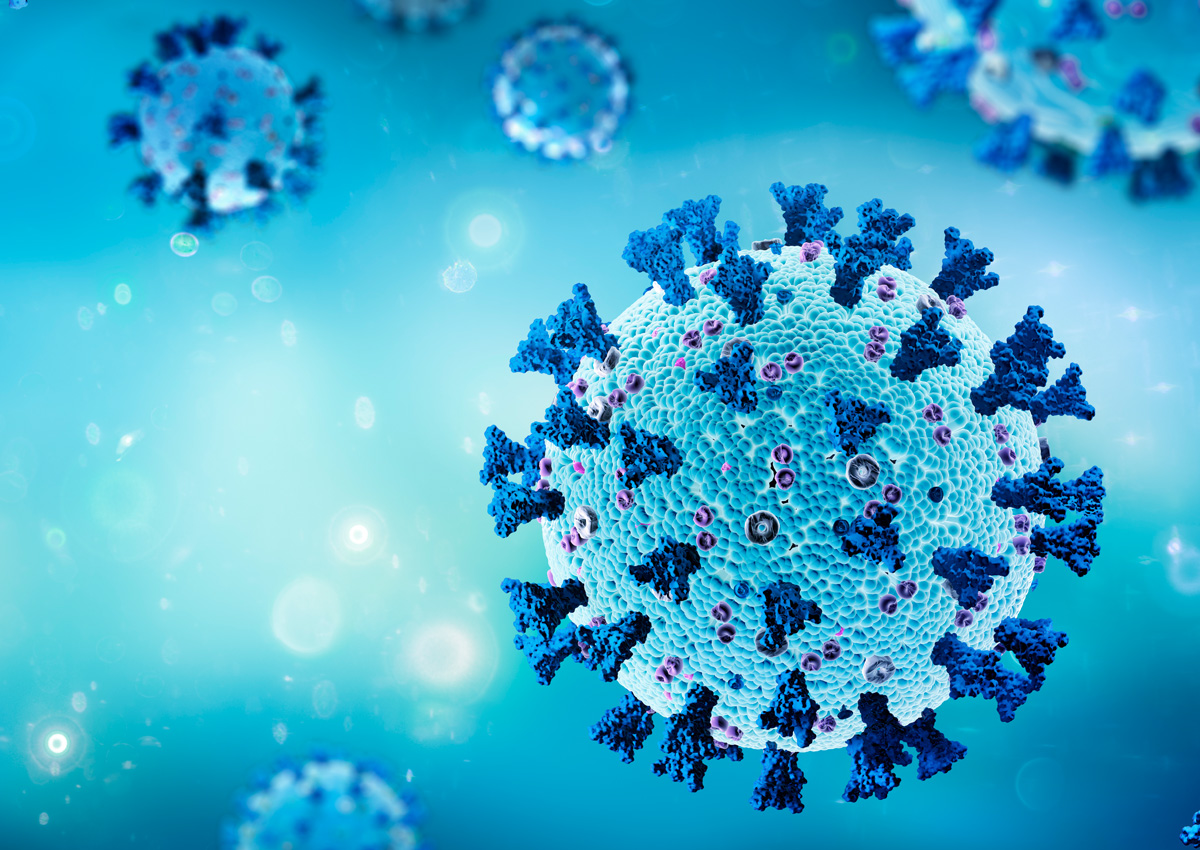
CRISPR Helped to Successfully Prevent and Treat COVID-19 Infections
August 3, 2022| |
Researchers led by a team at Duke Health in Duke University used CRISPR technology to successfully prevent and treat COVID infections in proof-of-concept experiments conducted in mice.
The experiments modified a currently available lipid nanoparticle to deliver a specific CRISPR-Cas13 mRNA that generates an inhospitable environment in the lungs for SARS-CoV-2 infection. Duke University professor Qianben Wang and colleagues focused on an enzyme that breaks down protein, a protease called cathepsin L, or CTSL, which is abundant in the lungs and has long been identified as playing a key role in SARS-CoV-2 and many other coronavirus infections, enabling the virus to enter host cells and proliferate.
Other researchers have attempted to use CTSL inhibitors to thwart coronavirus infections for many years. Lab experiments were promising, but animal tests had disappointing results. Using CRISPR technology, Wang's team was able to create a way to safely initiate CTSL inhibition. CRISPR-Cas13, delivered intravenously through a lipid nanoparticle, diminished CTSL in the lungs of mice, which effectively and safely blocked the SARS-CoV-2 virus from entering cells and infecting the host.
For more details, read the article in Duke Health News and Media.
| |
You might also like:
- CRISPR Gene Editing Stops COVID-19 from Replicating in Infected Human Cells
- Chemists Discover Structure of Key SARS-CoV-2 Protein
- CRISPR Technique 90% Effective in Reducing SARS-CoV-2 Coronavirus
Biotech Updates is a weekly newsletter of ISAAA, a not-for-profit organization. It is distributed for free to over 22,000 subscribers worldwide to inform them about the key developments in biosciences, especially in biotechnology. Your support will help us in our mission to feed the world with knowledge. You can help by donating as little as $10.
-
See more articles:
-
News from Around the World
- AI Tool Predicts Shape of ~200 Million Proteins
- Socio-economic Impact Assessment Complements Risk Assessment of Gene Drive Organisms, According to Experts
- Ghana Approves Bt Cowpea for Environmental and Market Release
- Texas A&M AgriLife Uses Corn Breeding and Entomology to Address Crop's Major Challenges
- Mechanism for Fruit and Seed Development in Flowering Plants Now Identified
- Researchers Identify Three Genes Involved in Melon Ripening
- Long-term Study Shows Agri-environment Schemes Boost Wildlife Populations
-
Research Highlights
- Plants Reveal Metabolism and Circadian Functions With the Help of Drugs
- Gene Recombination Region Sizes Affect Crop Performance of Rye
-
Plant
- Workshop to Explore Policy Considerations for Gene Editing in Asia and Australia
- Chinese Team Finds New Ways to Enhance Wheat Yield
-
Health
- CRISPR Helped to Successfully Prevent and Treat COVID-19 Infections
-
Read the latest: - Biotech Updates (February 11, 2026)
- Gene Editing Supplement (January 28, 2026)
- Gene Drive Supplement (February 22, 2023)
-
Subscribe to BU: - Share
- Tweet

